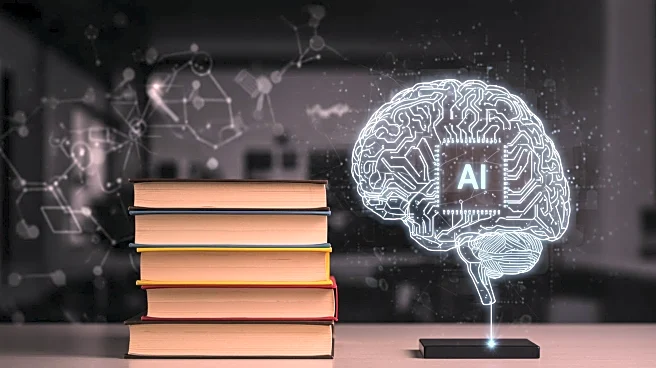What's Happening?
An opinion piece discusses the potential negative impact of large language models (LLMs) on academic competence and democratic institutions. The author, an English composition instructor, argues that reliance on AI-generated content could lead to a decline in critical thinking and writing skills among students. The piece highlights concerns about the uniformity of ideas produced by AI, which may limit diversity of thought and perspective. The author warns that this could undermine democratic processes and the competence of the workforce, as individuals may become overly reliant on AI for cognitive tasks.
Why It's Important?
The rise of AI in education and its potential to replace human thought poses significant challenges to the development of critical thinking skills. This could impact the quality of education and the ability of future generations to engage in informed decision-making. The article suggests that the widespread use of AI-generated content may contribute to a decline in intellectual diversity, which is essential for a healthy democratic society. Educators and policymakers may need to address these concerns to ensure that AI is used as a tool to enhance learning rather than replace it.
Beyond the Headlines
The article raises ethical questions about the use of AI in education and its implications for intellectual property and authorship. It also touches on the relationship between technology companies and political movements, suggesting that the use of AI could be manipulated to influence public opinion and voter behavior. The piece calls for a reevaluation of how AI is integrated into educational practices to preserve the integrity of academic discourse.









